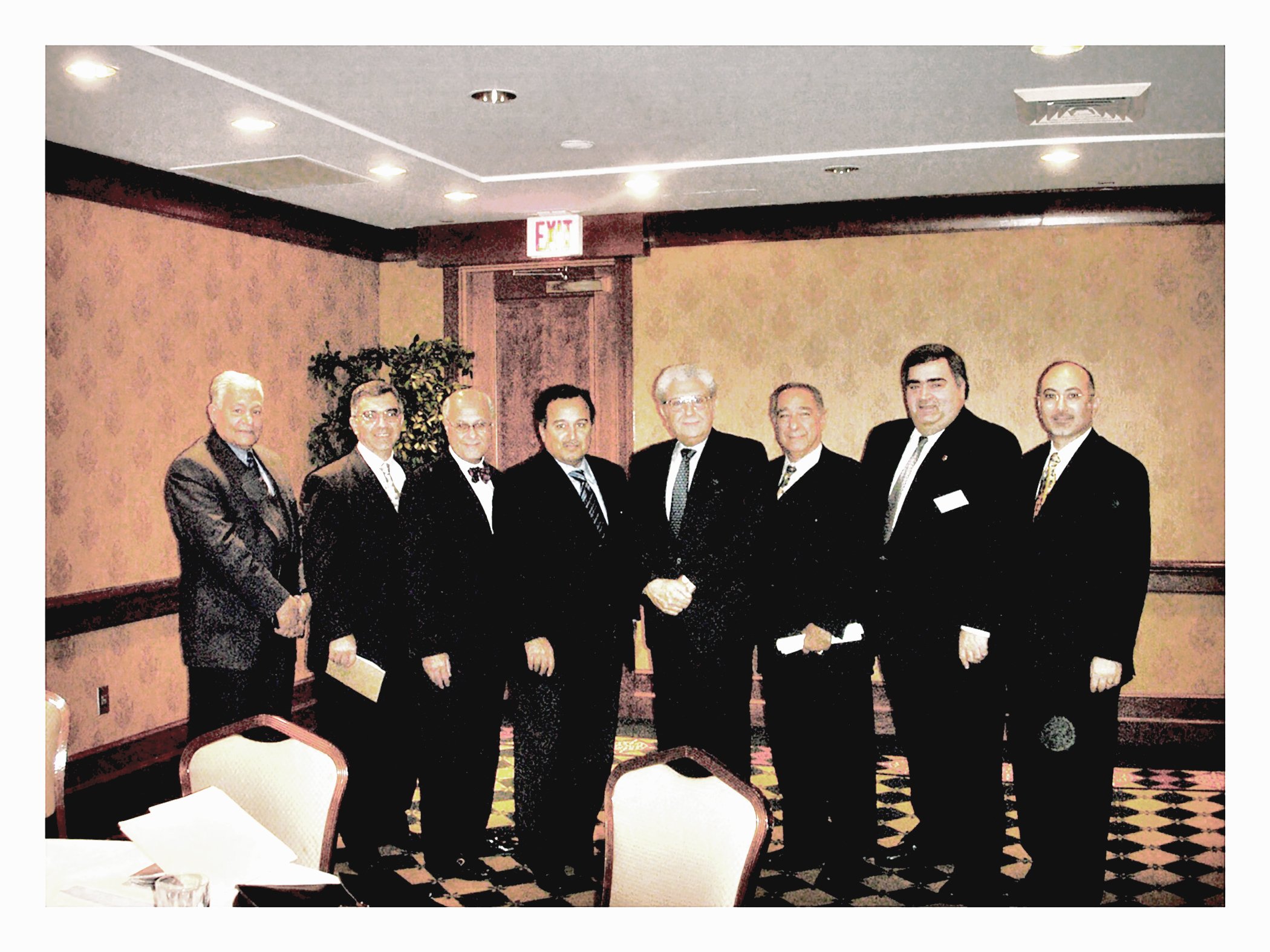
History of the Chicago Declaration
Since its inception in 2003, The Egyptian American Society (EAS) of Chicago has focused on contemporary issues that touch the lives of the members of the Egyptian American community and its relationships and interests in the Egyptian homeland. Paramount among those issues are the concepts of human rights, citizenry, shared Egyptianhood, belonging, and common historical and cultural heritage.
In July 2005, a committee selected by the EAS board issued the “Declaration on Egyptian Inter-Religious Issues” that became known as The Chicago Declaration. The Chicago Declaration was the culmination of almost three years of discussion within the community brought about by increasing incidents of sectarian strife in Egypt. Notable among these incidents, was the Kush’h village (قرية الكشح) massacre in southern Egypt on New Year’s Eve of 2000. Concerns among community members about the accelerating pace of violent conflict, and governmental failure to address its roots, led to the initiation of a Muslim-Christian dialogue through the establishment of the “Declaration” committee. The committee engaged in long and careful deliberations on issues of national unity, sectarian relations, and citizenry. These resulted in the formulation of an EAS position towards, and suggested policy prescriptions to, the crisis.
The Declaration committee members were selected to reflect the religious, professional, generational, and cultural diversity of the Egyptian American community. The committee was led by Professor M. Cherif Bassiouni and Dr. Refaat Abdel Malek, then-President and Vice-President of the EAS board of directors, respectively. Its membership included Professor Muhammad Eissa, Mr. Taha El-Ghawaby, Professor Kamal Ibrahim, Mr. Mohamed Ibrahim, Dr. Omar Khalil, Dr. Ahmed Meligi, Dr. Wagih Nessim, Dr. Dina Rashed, Mr. Ahmed Rehab, Dr. Medhat Tannous, and Professor Fouad Teymour.
The Declaration offered seven Basic Principles aimed at “bringing about a better inter-religious understanding in Egypt, enhancing national unity, and advancing the cause of equality and human rights of all in Egypt.” To uphold, fulfill, and support the basic principles embodied in the declaration, it provided a set of implementable “Guidelines” to respond to the sectarian tension.
The EAS worked to connect with Egyptian officials to showcase the Chicago Declaration. An EAS delegation flew to Washington DC in the fall of 2005 to formally present the document to the then Egyptian Ambassador to the United States, H.E. Nabil Fahmy. Following this meeting, copies were delivered to the office of Egyptian President Hosni Mubarak, the National Council for Human Rights (NCHR), and other state officials.
Subsequent meetings by Professor Bassiouni and other EAS board members with representatives of the Mubarak regime eventually led to the organization of a three-day conference titled “Citizenry: Justice and Equality” by Egypt’s NCHR, that was held in Cairo in November 2007. A Chicago delegation, led by Professor Bassiouni, attended the conference, alongside the leadership of several expatriate Egyptian organizations in North America and Europe. Professor Bassiouni, who served as panelist and moderator to several sessions, presented the Chicago Declaration to conference audience, sharing copies of the document. The Chicago delegation held several additional meetings on the crisis during the conference with dignitaries, including a dinner meeting with Ambassador Mohamed Fayek from NCHR, and counselor Mamdouh Nakhla of Al-Kalimah center for human rights. Chicago Declaration delegates, Professor Kamal Ibrahim and Mr. Taha El-Ghawaby, were invited to discuss the declaration on Amr Adeeb’s Cairo Today TV show. The document received additional coverage and media exposure during that period.
The Mubarak regime failed to respond adequately to the crisis, ignoring calls for actions by the Chicago Declaration even as sectarian violence continued. The Nag Hammadi massacre of January 2010 and the Alexandria Church bombing on New Year’s Day in 2011 underscored the lack of a national policy. A few weeks later, the regime fell following the January 2011 mass uprising. The deep commitment and involvement of the Chicago Declaration group to formalize the position of the EAS on equal citizenry in Egypt, brought to the fore the existing strong relationship that binds the Declaration leaders and the community at large.
Over the past two decades, the EAS has organized numerous functions where Egyptian American Muslims and Christians came together to celebrate cultural heritage and social events. The EAS is proud to have positively contributed to establishing and cementing an atmosphere of friendship and belonging for all Egyptians in Chicago. It has succeeded in offering an exemplary Egyptian American community where both religious groups have collaborated harmoniously.

